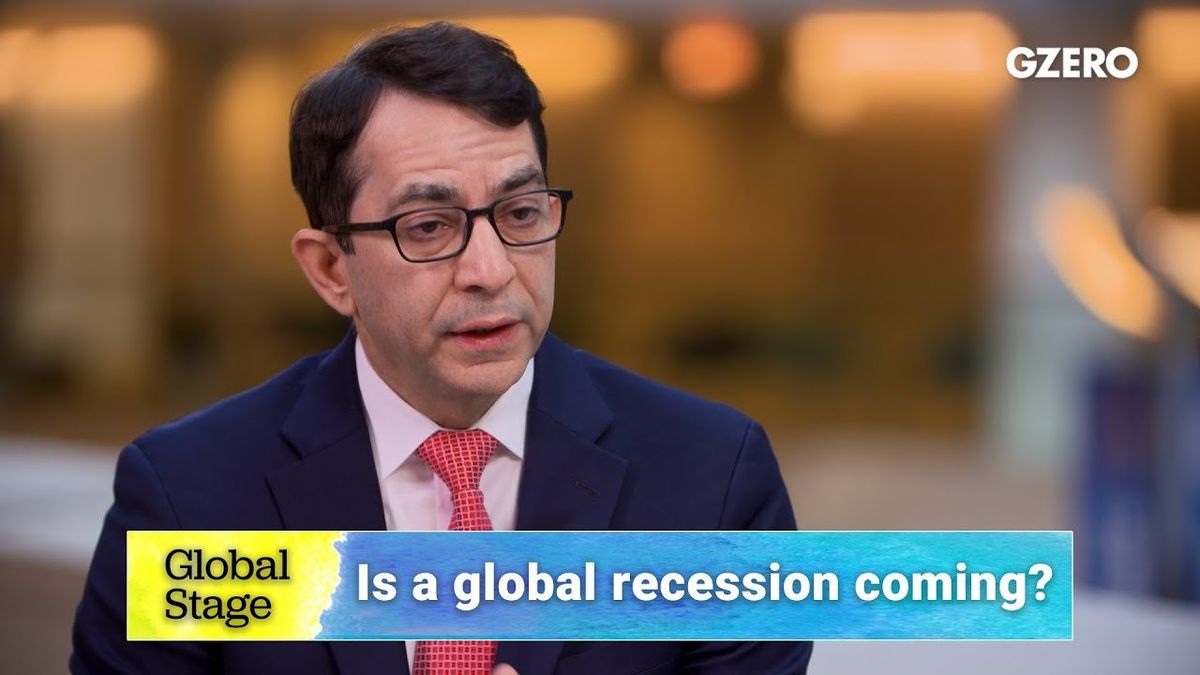The World Bank predicts that the global economy now faces a decade of lost growth, in part due to an older workforce and lower productivity. Is the way out of the looming doldrums to have a young population like Nigeria?
Yes, but those countries will need help from wealthy nations to invest in things like education to reap the benefits of their demographic divided, World Bank deputy chief economist Ayhan Kose tells GZERO's Tony Maciulis at the World Bank/IMF spring meetings in Washington, DC.
Meanwhile, the lender also wants developed countries to focus on its priority No. 1: climate. And there's always reforming the institution itself.
Kose explains why he thinks the World Bank can accomplish both goals, his take on whether artificial intelligence will deepen global inequality, and if believes a global recession is inevitable.
- What geopolitics stories could still blow up the global economy? ›
- Hard Numbers: Environmentalists targeted, World Bank outlook improves, mass shooting in Louisville, fiery cocktails in Northern Ireland, Winnie-the-Pooh gets punched ›
- Hard Numbers: World Bank chief resigns, Another Russian journalist jailed, Ukraine’s humanitarian needs, pessimistic Nigerians, good riddance Johns Hopkins tracker ›
- Want to help poor countries now? Open your markets to their farmers, World Bank chief tells wealthy nations ›
- Can the world avoid a global recession? ›
- Podcast: Fix the global debt crisis before it's too late, warns World Bank's David Malpass - GZERO Media ›
- World Bank's David Malpass on global debt & economic inequality - GZERO Media ›

















